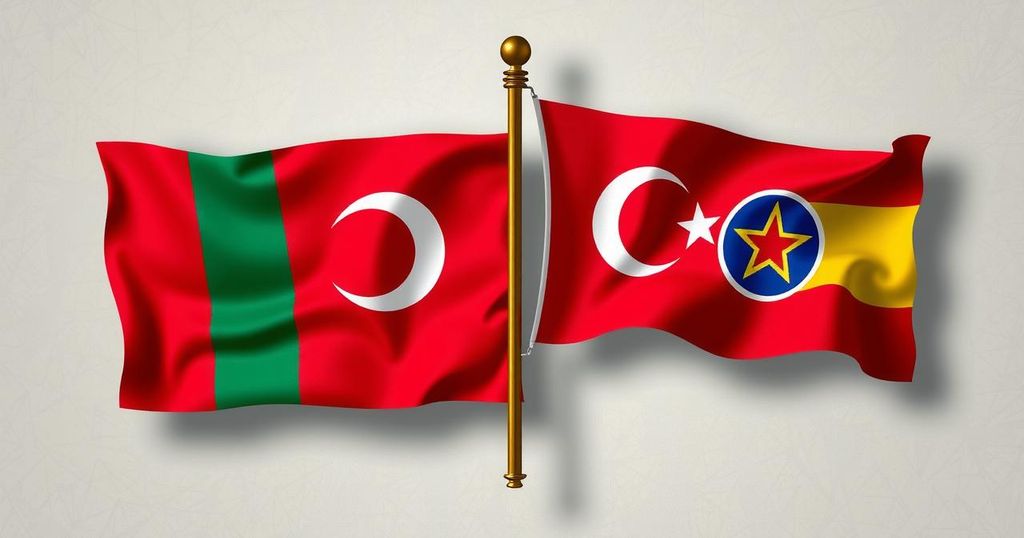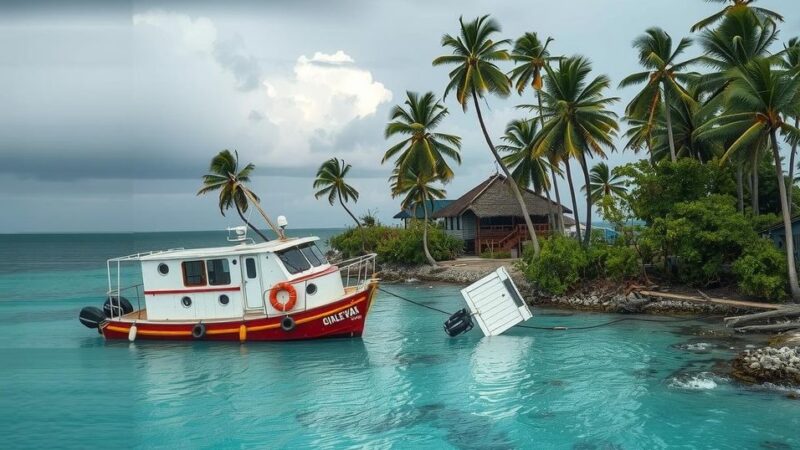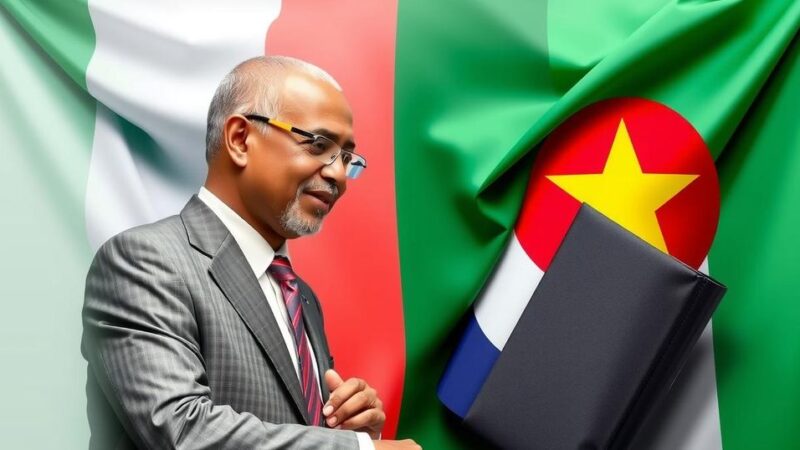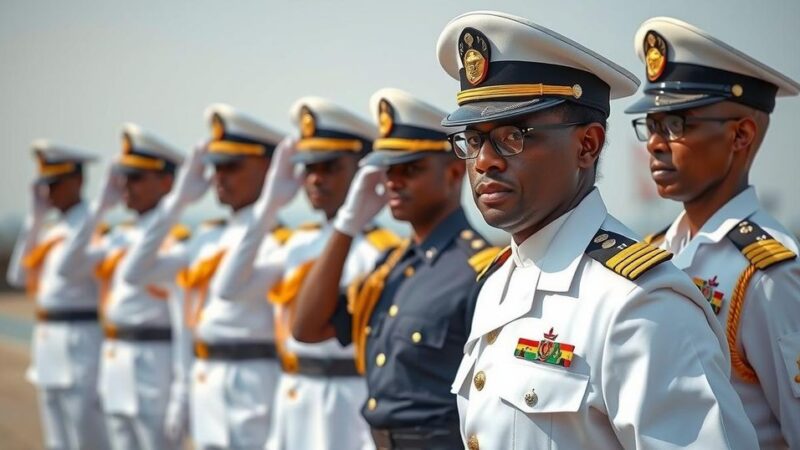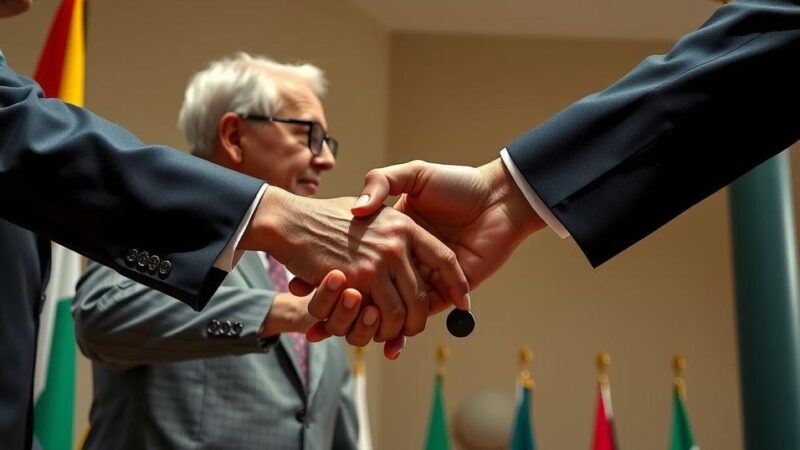Somalia and Ethiopia have restored diplomatic relations after a significant visit by Somali President Hassan Sheikh Mohamud to Addis Ababa, ending a year-long rift. Türkiye mediated the process, leading to the Ethiopia-Somalia Ankara Declaration, which emphasizes future cooperation, particularly in trade and security against extremism. However, complexities regarding Ethiopia’s sea access and regional dynamics persist as the two nations work towards stability in the Horn of Africa.
Somalia and Ethiopia have officially restored full diplomatic relations following a significant visit by Somali President Hassan Sheikh Mohamud to Addis Ababa, Ethiopia’s capital. This restoration signifies the conclusion of a year-long diplomatic rift, a situation exacerbated by Ethiopia’s controversial agreements with Somaliland. The Turkish government played a crucial mediating role by facilitating three rounds of negotiations, resulting in the Ethiopia-Somalia Ankara Declaration, which aims to foster cooperation between the two nations moving forward.
The declaration, celebrated by multiple international bodies, sets a timeline for technical negotiations to commence by the end of February 2025, seeking to conclude within four months. In a joint statement, President Mohamud and Ethiopian Prime Minister Abiy Ahmed expressed their commitment to overcoming previous tensions, promoting a vision of “friendship and solidarity” to deepen trade and security collaboration, particularly against extremist threats like Al-Shabaab.
The resumption of diplomatic ties comes on the heels of previous discord that arose when Ethiopia reached agreements with Somaliland, which jeopardized Somalia’s territorial claims. This strife led to Somalia expelling Ethiopia’s ambassador in April 2024. Despite their renewed relations, the specifics surrounding Ethiopia’s maritime access remain ambiguous.
Simultaneously, regional dynamics indicate a shifting landscape, with Somalia’s Foreign Minister Ahmed Moalim Fiqi recently meeting with counterparts from Egypt and Eritrea to address regional security concerns. This informal alliance expresses opposition to any non-coastal state establishing a military presence in the Red Sea, implicitly targeting Ethiopia’s strategic goals. This cooperation includes Egyptian troop involvement in the African Union Support and Stabilization Mission in Somalia, aiming to enhance security.
The thaw in relations between Somalia and Ethiopia, facilitated by Turkish mediation, presents an opportunity for regional stability. Nevertheless, significant challenges remain in navigating the complexities of maritime access and regional security politics.
Somalia and Ethiopia have experienced complex diplomatic relations characterized by periods of both cooperation and conflict. The recent deterioration of ties was primarily attributed to Ethiopia’s engagement with Somaliland, a breakaway region seeking international recognition, which strained its relations with Somalia. However, mediation efforts by Türkiye, coupled with international support, have been crucial in restoring dialogue and fostering a new cooperative framework aimed at enhancing stability in the Horn of Africa.
In conclusion, the restoration of diplomatic ties between Somalia and Ethiopia marks a pivotal step toward regional stability and cooperation. Facilitated by Türkiye’s mediation, the Ethiopia-Somalia Ankara Declaration lays the foundation for renewed collaboration in trade and security. While this diplomatic thaw provides a promising outlook, stakeholders must navigate the remaining challenges related to maritime access and regional tensions to ensure sustainable peace.
Original Source: ilkha.com

